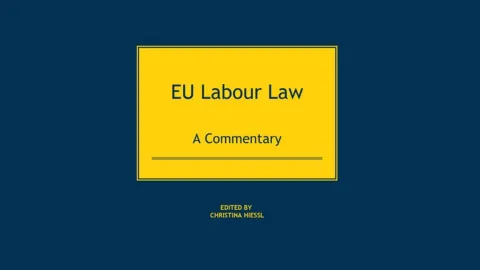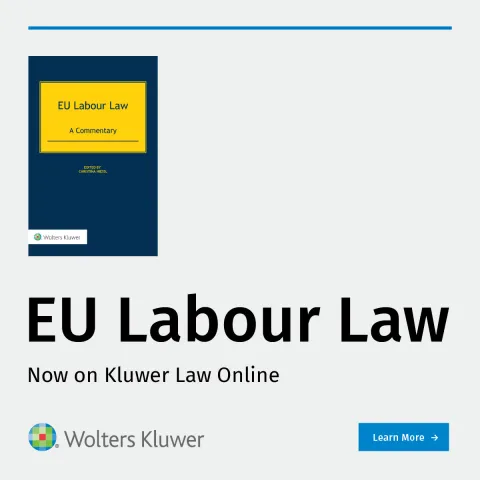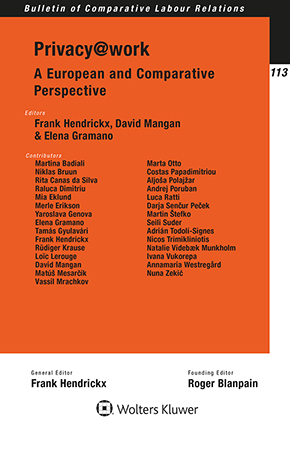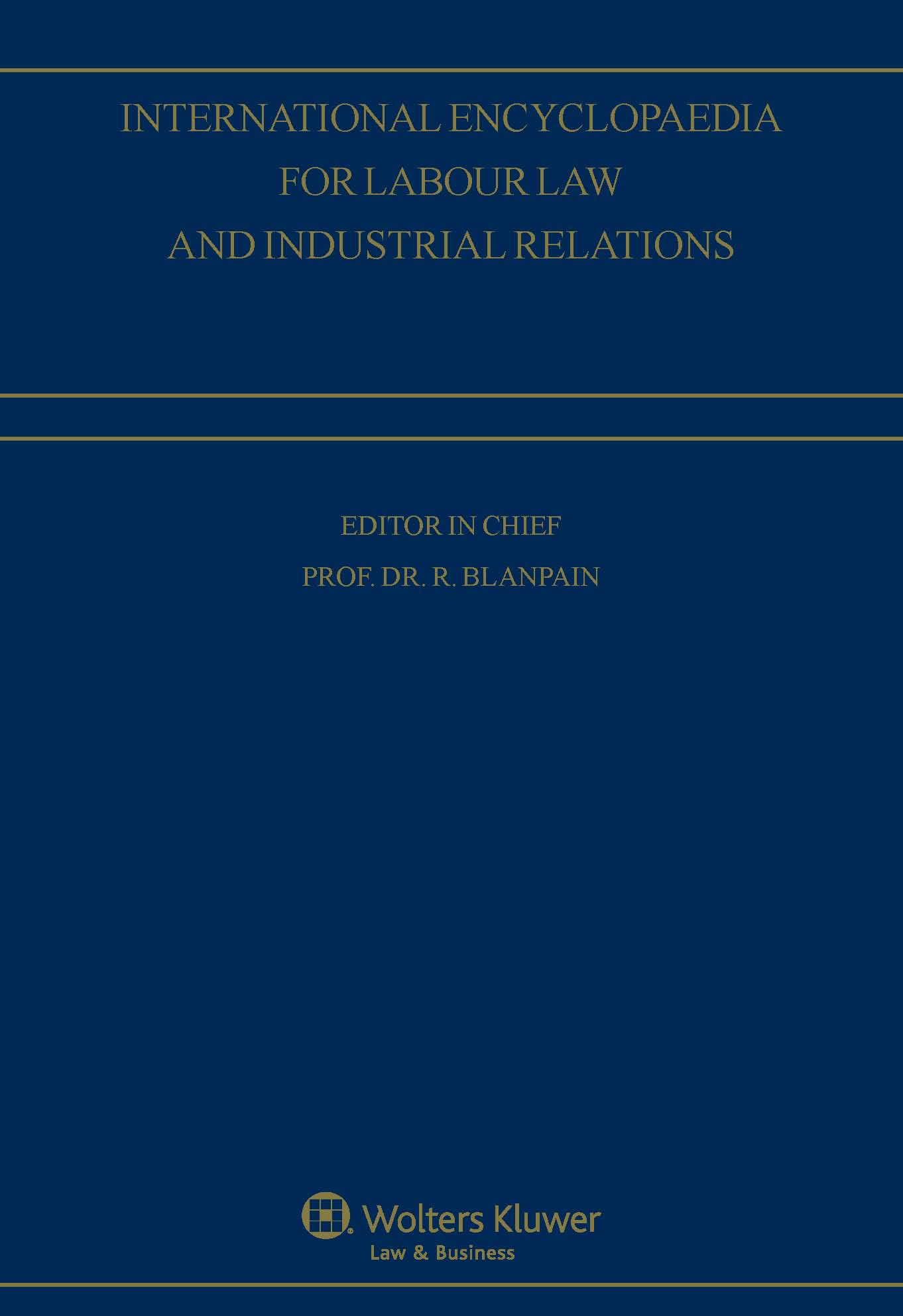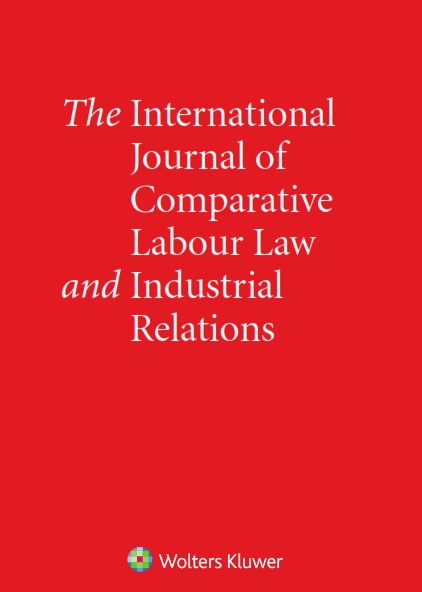The Adequate Minimum Wage Directive Decision: A Remembrance Day Ruling
November 10, 2025
This year, Sweden marks thirty years of membership in the European Union. During this period, the influence of the Court of Justice of the European Union has grown steadily – and on November 11, 2025, it delivers a historic judgment (C-19/23). On the surface, the case concerns the Directive 2022/2041 on Adequate Minimum Wages, adopted in 2024, but what is at stake is the future of the Union’s entire social policy framework.
What the EU Treaties refer to as social policy encompasses the regulation of the labour market. In the mid nineteen-nineties, when, for example, Sweden and Finland joined the Union, the common EU rules in this field were of a basic nature – they concerned, inter alia, general principles such as equal pay for equal work. The Member States had conferred upon the Union a limited competence to regulate the labour market. Nevertheless, the EU early on adopted several directives designed to protect workers – for example, in relation to collective redundancies, transfers of undertakings, and wage guarantee schemes in case of employer insolvency. These measures were introduced to ensure that the internal market would not be perceived merely as an instrument of capital; Working people in Europe, now expected to move across borders to seek employment throughout the Union, were also to receive something in return. The fact that the Member States had not explicitly conferred competence upon the Union in the field of social policy did not constitute an insurmountable obstacle to securing sufficient political support for the internal market project. At that time, moreover, there were fewer Member States and fewer disagreements, which made it possible to adopt directives by unanimity.
The Union’s lack of competence in the field of social policy was subsequently remedied through Treaty reforms. Initially, cooperation in this area was intergovernmental, as the United Kingdom under Prime Minister Margaret Thatcher staunchly opposed integration of social policy. However, with the Amsterdam Treaty of 1999, the EU was expressly empowered to adopt minimum rules concerning working conditions, social protection, equal treatment and the protection of workers, among other matters. Today’s ordoliberal-flavoured Treaty of Lisbon builds upon these principles: the EU is now to be a social market economy.
The beginning of this project was tentative. However, when the European Pillar of Social Rights was proclaimed in Gothenburg in 2017, developments accelerated rapidly, both in terms of the number of legal acts adopted and the number of individuals affected. Parents with young children seeking to balance work and family life may now request flexible work arrangements, telework, and flexitime. Working conditions must be predictable and transparent. Platform workersare to be protected. Pay structures must be transparent – so-called pay transparency. Furthermore, in her 2020 State of the Union address, Commission President Ursula von der Leyen declared that “in our Union the dignity of work must be sacred”, but also that “for too many people, work no longer pays”. According to von der Leyen, it was wage dumping that destroyed the value of work, and therefore she pledged to deliver a directive capable of raising minimum wages within the EU. And here we are now – before the Court of Justice, to determine whether the directive she delivered may, in fact, be lawfully adopted by the Union.
The CJEU’s judgment is not about whether higher minimum wages are desirable or undesirable, nor even about whether it is good or bad that the EU adopts a directive on adequate minimum wages. Rather, the legal proceedings concern whether the EU has acted within the limits of the competences conferred upon it by the Member States. The Treaties provide for the Court of Justice to examine such matters within the framework of an action for annulment. Have the powers exercised by the Union remained within the limits established by the Treaties? That is the question the Court decides on November 11, 2025.
Interpreting EU law in order to determine its meaning is a complex task, particularly in relation to the most fundamental Treaty provisions. Amendments to the Treaties have conferred upon the EU additional competence to regulate in the area of social policy while simultaneously delimiting that competence. The EU may not adopt directives concerning “pay, the right of association, the right to strike or the right to impose lock-outs”, as stated in Article 153(5) of the Treaty on the Functioning of the European Union. The Court’s task is to provide the authoritative interpretation of how the conferred competence is to be understood in relation to what has been excluded: what constitutes “pay” and what constitutes “the right of association”? And is it precisely these matters that are regulated by the Directive on Adequate Minimum Wages? Ultimately, the Court must persuade that the solution it provides is the correct one.
The Directive on Adequate Minimum Wages is eagerly awaited by many. The European Commission has spoken of potential increases in the lowest wages in certain Member States by as much as twenty per cent. Perhaps the directive represents a way for the EU to atone for the draconian measures taken during the euro crisis of 2008–2009, and to offer something in return to the hard-pressed working population of Europe.
In any event, the 11th of November 2025 will be a historic day for the European Union. The judgment delivered today will have significant implications for what is legally possible within the framework of the Union’s social policy. Since Ursula von der Leyen’s pledge to introduce EU rules on adequate minimum wages, much has happened – not least a pandemic and war in Europe. Social policy no longer ranks high on the political agenda, but when it returns, today’s judgment will be decisive – it may open the door to an entirely new mandate for the EU to shape the living conditions of Europe’s citizens.
Should the Directive on Adequate Minimum Wages be upheld by the Court of Justice, it is likely that stronger claims will arise for the development of EU cooperation in the fields of social security and unemployment insurance – and, ultimately, income taxation. Social policy could then come to be regulated at supranational level.
If, on the other hand, the Directive on Adequate Minimum Wages were to be annulled, a profound political crisis would likely follow: substantial political prestige has been invested in this legislative initiative, and questions would inevitably arise concerning von der Leyen’s future should the directive be struck down.
The outcome of the case is difficult to predict – the evolution of EU law has often proved capricious and surprising. What is certain, however, is that in these times of Trumpism, democratic backsliding, and the erosion of the rule of law both within the EU and globally, it is crucial to ensure a thorough judicial review of whether the Union has exceeded its competences at the expense of the Member States, and whether the Union’s legislative power has been exercised within the limits defined by the Treaties.
You may also like
